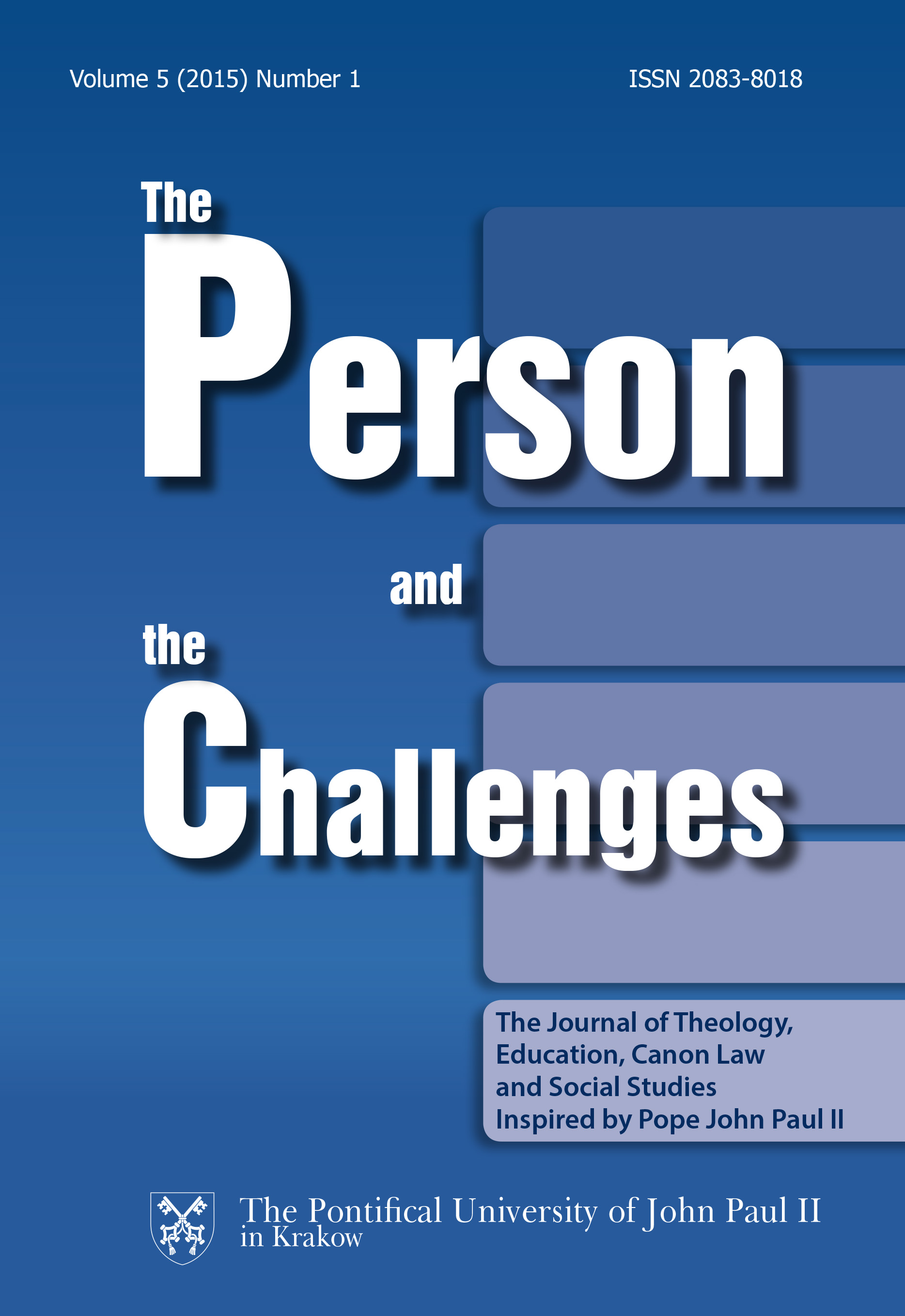Discernimento del Superiore religioso: la postulazione
DOI:
https://doi.org/10.15633/pch.933Słowa kluczowe:
Collegiality, religious Superior, canonical office, postulation, impediment, dispensationAbstrakt
The main purpose of the present submission relates to the matter of the postulation regulated by the legal disposition expressed in canons 180 e 181 CIC/83. The main emphasis is not placed on the correct application of the canon law, in the case concerning the dispensation granted to who is ineligible to the canonical office or other assignment.
Instead, the Author tries to highlight the meaning and importance that must be given to the discernment undertaken by the collegial Authority in the case of election. The article presents the certain conditions required from the candidate and, at the same time, supplies these criteria, which usually are considered by the Congregation of Institutes of Consecrated Life and Societies of Apostolic Life in the matter of admission of the postulation.
Bibliografia
Andrés D., I Capitoli religiosi. Autonomia, potestà e rappresentanza con particolrae riguardo al diritto di petizione, in: P. Gherri (ed.), Responsabilità ecclesiale, corresponsabilità e rappresentanza. Atti della Giornata Canonistica Interdisciplinare, Lateran University Press, Roma 2010, p. 153-182.
De Paolis V., La vita consacrata nella Chiesa, Marcianum Press, Venezia 2011, p. 359.
García Martín J., Le norme generali del Codex Iuris Canonici, Ediurcla, Roma 2006, p. 612-613.
Gherri P., Corresponsabilità e diritto: il diritto amministrativo, in: P. Gherri (ed.), Responsabilità ecclesiale, corresponsabilità e rappresentanza. Atti della Giornata Canonistica Interdisciplinare, Lateran University Press, Roma 2010, p. 115-152.
Gherri P., Note sul discernimemto ecclesiale, Lucera (FG) 9 marzo 2012, in: URL: <http://gherripaolo.eu/lucera_discernimento.pdf> (06.06.2014).
Manzo O., La postulazione nella prassi della Congregazione per gli Istituti di vita consacrata e le Società di vita apostolica, "Sequela Christi" 2 (2012), p. 173-188.
Miñambres J., Postulación del candidato, in: J. Otaduy – A. Viana – J. Sedano (ed.), Diccionario General de Derecho Canónico, vol. VI, Aranzadi, Navarra 2012, p. 280-282.
Pavanello P., La concessione di grazie: aspettative ed attese, in: J. I Arrieta (ed.), Discrezionalità e discernimento nel governo della Chiesa, Marcianum Press, Venezia 2008, p. 179-186.
Pobrania
Opublikowane
Numer
Dział
Licencja
Prawa autorskie (c) 2015 Przemysław Michowicz

Utwór dostępny jest na licencji Creative Commons Uznanie autorstwa 4.0 Międzynarodowe.
Autorzy publikujący w czasopiśmie udzielają jego wydawcy zgody o następującej treści:
- Autor zachowuje autorskie prawa majątkowe do utworu, a jednocześnie udziela wydawcy czasopisma zgody na jego pierwszą publikację w wersji drukowanej i wersji online na licencji Creative Commons Uznanie autorstwa 4.0 Międzynarodowe oraz zgody na wykonywanie opracowań, w tym przekładów.
- Autor ma możliwość udzielania zgody niewyłącznej na opublikowanie utworu w wersji, która ukazała się w czasopiśmie (np. zamieszczenia go w repozytorium instytucjonalnym lub opublikowania w książce), wraz z informacją o jego pierwszej publikacji w czasopiśmie.
- Autor może umieścić swój utwór online (np. w repozytorium instytucjonalnym lub na swojej stronie internetowej) jeszcze przed zgłoszeniem utworu do czasopisma.

